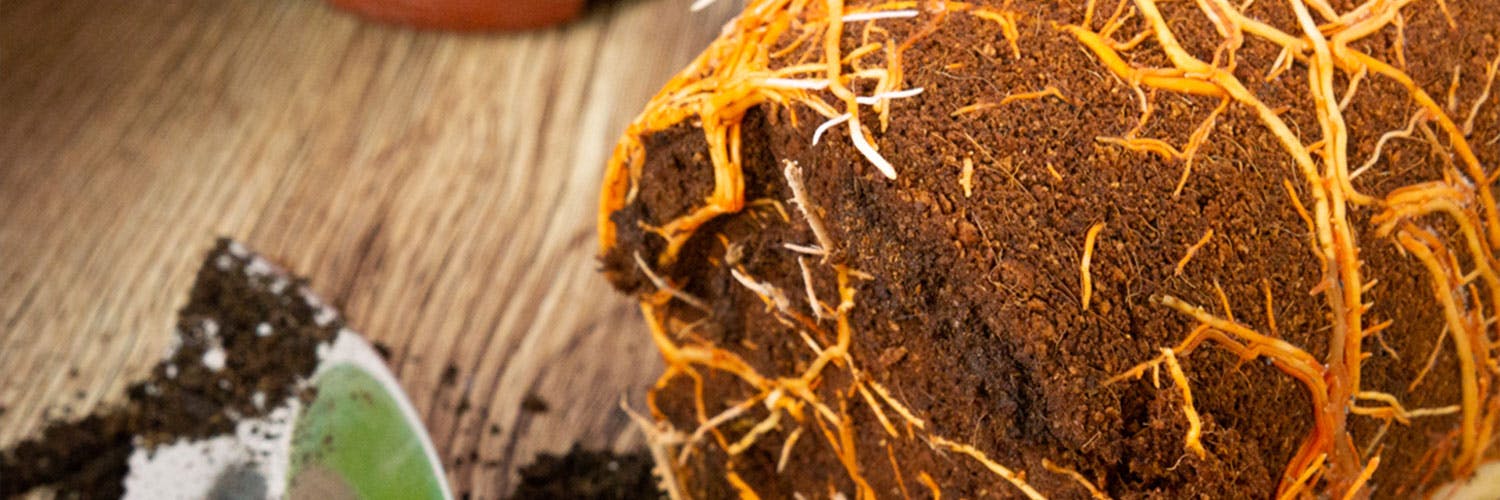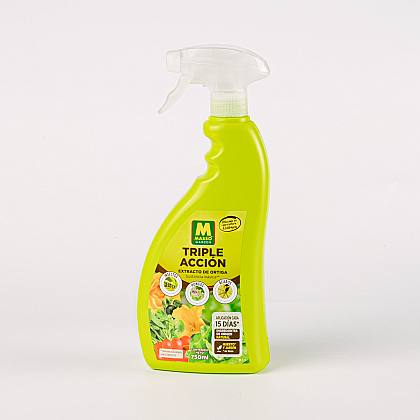Homemade insecticides to eliminate the pest from your plants
Taking care of your plant, understanding its watering cycles, fertilising it and always being aware of its needs will help it to grow big, sturdy and happy; but there are things that can get out of control: pests.

Taking care of your plant, understanding its watering cycles, fertilizing it and always being aware of its needs will make it grow big, lush and happy; but there are things that can get out of our control: pests. Mealybugs, ants, slugs, spider mites, and aphids can decide to attack your plants and wreak havoc on what you've worked so hard to maintain.
There are many pesticides on the market, but their ingredients are often toxic and if you have pets, this can be a problem. But don't despair, because many products you have at home can be used to combat these annoying pests. Read on and learn how to use homemade insecticides to eliminate the pest from your plants.
Homemade insecticides for plants
- Garlic
Ideal for eliminating aphids. Make it by blending a large head of garlic in two cups of water. You can add 1/2 onion to make it more effective. Strain and sit for 12 hours. Dilute this mixture in 2 liters of water and apply directly to the plant with the help of a sprayer.
- Castile soap
is ideal for removing powdery mold, mealybugs, and other insects such as aphids, mites, and thrips. Just dilute a large tablespoon of castile soap, 2 teaspoons of baking soda and 2 tablespoons of vegetable oil in 2 liters of water. Mix very well and mist the plant.
- Eggshells
are a fantastic ingredient for your garden, as it works as a fertilizer as it provides nutrients such as zinc, iron, manganese and phosphorus but also works as a repellent for snails, caterpillars and slugs. Preparing it is simple: wash the eggshells very well, remove the inner white membrane. Let it dry very well in the sun. Process the dried peels in a food processor or blender until they are powdered. Spread the powder around each plant, creating a protective ring.
- Cow's milk
is rich in lactic acid, which acts as an excellent fungicide, as well as fighting mite pests. Make this homemade milk insecticide by mixing 1/4 cup of milk, 1 cup of wheat flour, and 5 liters of water. Mix very well until homogeneous and apply to the entire plant with a spray.
- The
natural oils that are present in the skin of citrus fruits such as limes, lemons, oranges, tangerines and grapefruits are very effective in eliminating insects such as aphids, mealybugs and other soft-shelled ones. To prepare your homemade citrus repellent, cut the skin of these fruits into strips, put them in a heatproof container and add 2 cups of boiling water. Cover and let sit for at least 24 hours. Spray your plants with this solution a couple of times a week.
- Wood
ash, which can be left in a fireplace or after a barbecue, is rich in minerals that will help plants absorb nutrients more efficiently, but its benefits are not limited to this, as it is a multi-purpose insecticide and fungicide. In fact, to get rid of snails, worms, and slugs, spray around the plant. To prepare an insecticide with ashes you only have to mix a couple of tablespoons of ash in a liter of water and let it sit for about 4 days. Strain to remove impurities and add a tablespoon of castile soap. Spray the plant with a sprinkler.

